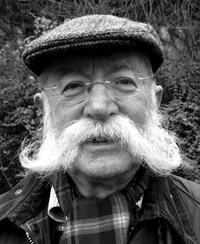History of ENT
Erwin Geising and the fall of the Third Reich
It’s mid 1944. The allies have landed at Normandy, the Germans have abandoned Rome and are retreating from the Russians on the eastern front. The Fuhrer was in way over his head and out of his depth. Watching this series...
Vicarious (nasal) menstruation
Hippocrates himself is known to have said that when a woman’s menses are due, but instead of the usual vaginal menstrual flow, she has a haemorrhage from the nose, then this is a sure sign of pregnancy [1]. Artist’s impression...
From Hippocrates to COVID-19: sniffing out the disease
The ancient Greek physician, Hippocrates, used the ‘art of smell’ to diagnose diseases around 400BC. He also formulated miasmatic theory, which posited that disease is caused by bad smells. Bad air was strongly believed by many physicians to be the...
The fatal illness of Frederick the Noble
Sir Morell Mackenzie is acknowledged as the ‘Father of British Otolaryngology’. He was the leading throat specialist of his time and one of the founders of the Journal of Laryngology and Otology in 1887. He studied in Paris, Vienna and...
Not just the scissors: the story of Myron Metzenbaum
Myron Metzenbaum was born in Cleveland, Ohio (USA) in 1876, the fourth of nine children. As a young man, he worked in the family’s linen store, where his father was well known to be very kind to the less fortunate...
ENT and the Titanic
One otolaryngologist who perished on the ill-fated voyage of the RMS Titanic on 15 April 1912 was Dr Ernest Moraweck, a prominent physician with an interest in ENT (and ophthalmology), living in Frankfort, Kentucky, USA [1]. Moraweck was an inventive...
Oscar Wilde’s Final Irony
The celebrated writer and poet, Oscar Fingal O'Flahertie Wills Wilde was born on 16 October 1854 in Dublin. He distinguished himself as a classicist at Trinity College Dublin before, earning a scholarship to Oxford University, where he gained a double...
Beware of Bicycle Face!
Many of us were told as children that we would get square eyes from watching too much television. But spare a thought for those late Victorian ladies, embracing their first taste of liberty on a bicycle, who were threatened with...
Freud’s Friend, Fliess
Wilhelm Fliess, a Berlin rhinologist, was for many years Sigmund Freud’s closest friend and confidant. He was born in Poland in 1858. In 1887, he visited Vienna for postgraduate studies, and met the famous psychoanalyst, Freud [1]. They were immediate...
Murder most foul, strange and unnatural
Hamlet, written by William Shakespeare at the very beginning of the 17th century has definite otological interest. The whole play is about young Prince Hamlet’s revenge for his father’s murder. The king is killed by Hamlet’s wicked uncle, who then...
Phineas Fletcher and The Purple Island
The Reverend Phineas Fletcher was a 17th century poet whose epic poem, The Purple Island describes the anatomy of the human body. Not only poets, but contemporary anatomists believed in two important concepts, correspondences and signatures. They thought that when...
A brief history of adenoidectomy - a glowing report of the post nasal space
The traditional adenoid curette more closely resembles a medieval torture device than an instrument of cure. Therefore it is not much of a surprise to learn that it has changed little since its invention almost 150 years ago. During that...


















